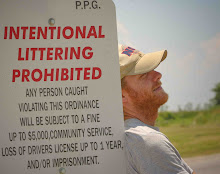 The title says it all; "Beyond Arms Control."
The title says it all; "Beyond Arms Control.""Arms control" is an academic and policy field invented during the Cold War to ideologically legitimate American empire as it is manifested through the vastly superior armaments of the US warfare state which no other nation's war-making capabilities can remotely compare to. Arms controllers have spent decades justifying why the United States possesses nuclear weapons and other especially destructive implements of war (landmines, bio-weapons, depleted uranium, etc.), while explaining why other nations, particularly non-white, Islamic, and formerly colonized nations should never aspire to these kinds of killing systems.
In the 1990s stateside peace and disarmament activism was professionalized with serious infusions of foundation money, and the end of the Cold War simultaneously brought about a demobilization of mass movements that until then had sought to check the reckless qualitative and quantitative expansion of nuclear and other arms. Around this time dozens of think tanks and centers sprang up at prestigious universities and freestanding organizations established themselves inside the D.C. beltway, all to employ a cottage industry of "experts" who would advise the state on how to control world armaments after the Reagan era race against the Soviets. Surviving antinuclear and antiwar NGOs changed with the times. The result was that many activists began to adopt the language and rationale of the formerly elitist and state employed arms controllers; they began to speak to the state, to advise its bureaucrats, generals, and politicians in their uses and abuses of power, to assist them in legitimating the project of American imperial expansion after the fall of the Soviet "evil empire."
Because it was created and developed as an organ of the imperial state, arms control as a paradigm can never be used to pursue democratic, self-determined development of nations. Its entire purpose for being is to maintain the military (and thus economic and political) hierarchy of nations with the USA at the top.
So what kind of "field" of study and political action do we offer instead? If we are not focused on giving "better" advice to state leaders, then who are we advising instead? If controlling the proliferation and use of armaments is not the first priority then what is? If nuclear weapons are in fact and in order of our intellectual concern not the single most alarming "threat" to "humanity" than what is? If nuclear weapons are not for "deterrence" and never were, then what are they for? Who really benefits from militarism?
Check out the first, fifth, eighth, ninth, and tenth chapters.
Big ups to Ray Acheson of Reaching Critical Will for editing this volume.

1 comment:
Thanks for alerting us to that book. Hadn't heard of it. Just catching up with your ZComm article earlier this year "Full-Court Press."
Post a Comment